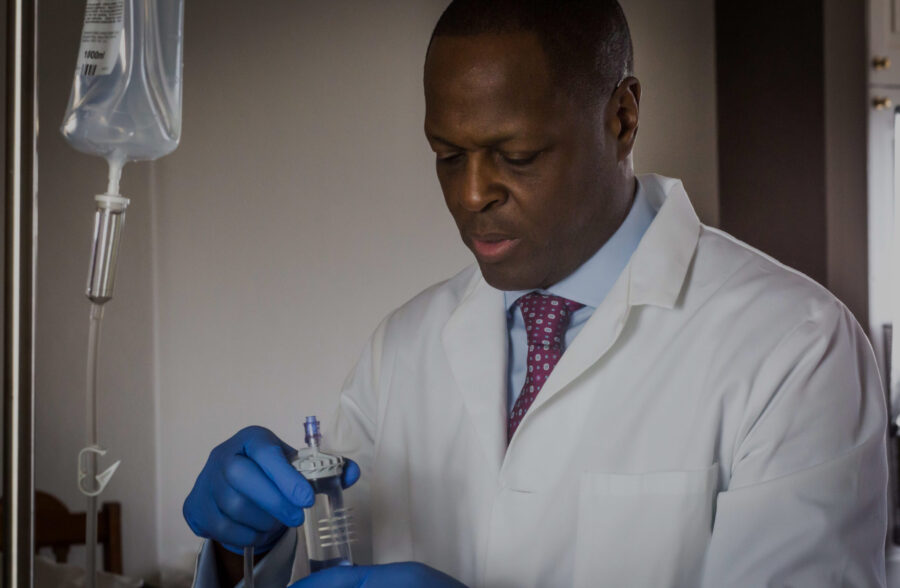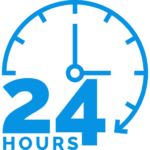At RRMG, we advocate a collaborative and multidisciplinary approach to client care. For this reason, we offer two types of physical rehabilitation, osteopathy and physiotherapy. You may see both a physiotherapist and osteopath. In addition, you may be referred to one of our doctors and other specialists, if we feel this is the most effective way to get you pain-free and back to doing the activities you love most.
Osteopathy and Physiotherapy are very similar concepts. Both are manual therapies that treat musculoskeletal problems with the aim of improving mobility, reducing pain and improving quality of life. ‘Musculoskeletal’ refers to muscles, tendons, ligaments, bones, and fascia. Both Physiotherapists and Osteopaths examine, diagnose, form management protocols and treat musculoskeletal problems by looking at the function of your body as a whole. Both undertake years of training in anatomy, physiology and pathology. Both use techniques such as palpation, mobilisation and manipulation of joints, electrotherapy and acupuncture.
While there are few differences between the two approaches, the main one is that Osteopathic treatments focus more on hands-on therapy while Physiotherapy focusses more on rehabilitative exercises.
Osteopathy is defined as a system of diagnosis and treatment for a wide range of medical conditions. It works with the structure and function of the body and is based on the principle that the well-being of an individual depends on the skeleton, muscles, ligaments and connective tissues functioning smoothly together.
— General Osteopathic Council
Physiotherapy is defined as the treatment of ‘injury, illness or disability through movement and exercise, manual therapy, education and advice.’
— Chartered Society of Physiotherapy
Osteopathy
Osteopaths are most commonly known for treating back pain, but osteopathy considers total body healthcare and focuses on strengthening the musculoskeletal system to better support and protect your body. We provide evidence-based osteopathy treatment for chronic and acute pain.
Osteopaths consider not only the muscles but the skeleton, ligaments and connective tissues. They are hands-on and use manual therapy to treat patients – often a combination of physical manipulation, mobilising joints, stretching and massaging. Osteopathy treatment may also involve exercises and other treatment techniques.
Additional treatments to assist with recovery are Extra-corporeal shockwave therapy (ESWT) and Laser Therapy.
You could benefit from osteopathy if you suffer from.
Osteoarthritis Pain (Including Knee Pain And Hip Pain)
Muscle Spasms
Backache
Headaches
Postural Problems
Rheumatic Pain
Sports Injuries (Including Tennis Elbow)
Lower Back Pain (Including Sciatica)
Neck Stiffness
Shoulder Pain (Including Frozen Shoulder)
General Aches And Pains
Arthritic Pain
Trauma (From Accidents Or Injuries, Like Whiplash)
Fibromyalgia
Physiotherapy
Physiotherapists are experts in the structure of the human body and its movement. They aim to assess, treat and prevent the impact of injury, disease and disorders in movement and function. They listen to your needs to tailor an assessment and treatment specific to you. Physiotherapists often work alongside doctors and other health professionals as part of a team to plan and manage your treatment. Our physiotherapists are registered with The Health and Care Professions Council (HCPC) and the Chartered Society of Physiotherapy (CSP).
What is Physiotherapy
The Chartered Society of Physiotherapy (CSP) describes physiotherapy as ‘the treatment of injury, illness or disability through movement and exercise, manual therapy, education and advice. Physiotherapy is a science-based profession and takes a ‘whole person approach to health and wellbeing, which includes the patient’s general lifestyle. At the core is the patient’s involvement in their own care, through education, awareness, empowerment and participation in their treatment.’
What do Physiotherapists do?
Physiotherapists assess, diagnose and treat to help you to reduce pain and stiffness, increase mobility, recover from injury and prevent further injury. They use a number of treatment modalities including hands-on mobilisation, massage, electrotherapy, acupuncture, exercise rehabilitation and education. As first contact practitioners, you don’t need a doctor’s referral to see a physiotherapist.
What do Physiotherapists treat?
At RRMG our physiotherapists are Musculoskeletal and experts in Men & Women’s health.
Musculoskeletal therapy is used to treat conditions such as back pain, headaches, sprains and strains, sports and workplace injuries, arthritis, postural problems and post-op rehabilitation amongst other things.
Men’s health therapy is used to treat patients suffering from bladder issues or erectile dysfunction.
Women’s health therapy is used to treat urinary incontinence, pelvic organ prolapse, complex pelvic pain, pre and postnatal care and breast cancer care.
Back And Neck Pain
Headaches
Breast Cancer – Post Surgery And Treatment Rehabilitation
Arthritis
Sports Injuries
Pre And Post Operative Rehabilitation
Pre And Postnatal Care
Men's Health
Women's Health Physiotherapy
Women’s Health Physiotherapy
Women’s Health Physiotherapy is the treatment and management of a variety of conditions that may affect women throughout their life. This includes any health concerns related to pelvic floor dysfunction, pre and post-natal rehabilitation, continence, pelvic pain, menopausal changes, post-surgical conditions and breast cancer. We are experienced in treating women through pregnancy, postpartum menopause and beyond!
Conditions we treat
- Pelvic Floor Dysfunction
- Incontinence
- Constipation
- Urinary frequency and overactive bladder
- Interstitial cystitis (bladder pain syndrome)
- Pelvic organ Prolapse
- Pelvic pain and pudendal neuralgia
- Vaginal pain including vaginismus, vestibulodynia and vulvodynia
- Diastasis recti (Post-natal tummy muscle separation)
- Perineal, episiotomy and caesarean section scarring
- Postnatal MOT
- Cording (following breast surgery)
- Post-operative care
- Post chemo rehabilitation
What happens during a session?
Your initial consultation includes a comprehensive history of your bladder and bowel function, sexual background, obstetrics history and pelvic floor function. If deemed suitable, we may perform an internal vaginal examination to assess your pelvic floor function. We also have access to real-time ultrasound which can be used on the abdomen or lower tummy to assess your pelvic floor function without the need for an internal examination. Real-time ultrasound is also a great way to provide you with visual feedback while teaching pelvic floor exercises.
We will then educate you on your condition and provide a treatment plan to manage your symptoms.
Men’s Health Physiotherapy
Pelvic health is as important to a man’s well-being as it is to a women. Though it may come as a surprise, men have pelvic floors too! Men’s health physiotherapy often works in conjunction with urologists. Physiotherapy can be beneficial to men who are suffering from a bladder or sexual dysfunction, such as erectile dysfunction, and pain. Often these issues are due to pelvic floor dysfunction (either a weakened or overactive pelvic floor).
- 1 in 10 men may experience pelvic floor or continence issues during their lifetime
- 1 in 5 men suffer from erectile dysfunction in the UK (more than 20% of men under 40 years of age and more than 50% of men over 40 years of age)
- Up to 70% of men suffer from urinary incontinence following prostatectomy surgery
- 16% of men over 18 have an overactive bladder
Common men’s health issues that we can treat are:
- Stress Urinary Incontinence
- Overactive Bladder
- Erectile Dysfunction and Peyronie’s disease
- Ejaculatory Dysfunction
- Prostate surgery – pre-op and post-op care
- Pain in the groin, pelvis, bowel, or genitals
- Return to exercise
What happens during a session?
Your initial consultation will include a thorough assessment and explanation of your treatment plan. The assessment may involve an internal rectal examination, however, this is not always necessary. We also have access to real-time ultrasound which can be used on the abdomen or lower tummy to
allow us to accurately assess your pelvic floor function without the need for an internal examination. Treatment may include education and advice, manual therapy and exercise, with a focus on self-management. For the treatment of erectile dysfunction, shockwave therapy may be used.
We are here for you
Request Your Appointment Today!

WELCOME TO RRMG!
Welcome to a Family RRMG Healthcare
Rogers Regenerative Medical Group (RRMG) provides world-class Regenerative Orthopaedics and Sports Medicine specializing in the comprehensive treatment of the musculoskeletal system and the use of specific treatment types best suited for sports injuries and a variety of other health issues. The treatments range from non-operative, minimally invasive, regenerative therapies or a combination.
Other services include metabolic medicine, exercise physiological testing, weight management, biomechanical analysis, ergonomic assessments, gait and postural analysis to identify and measure abnormal movement patterns and muscle imbalances, running medicine, nutritional guidance and weight management.

+44 (0) 20 7112 5400
Contact us for a
Consultation!
